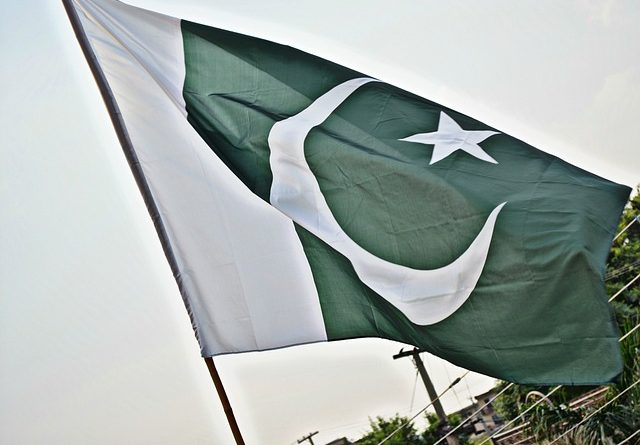Growing Angst against China in Pakistan
A terrorist group linked to the Taliban attacked a convoy of Chinese workers near Gilgit, killing the bus driver and five Chinese nationals. The Chinese are currently working on the Dasu and Diamer dams, which are being built on reclaimed land in Kohistan district and Gilgit-Baltistan.
Investigators revealed that the bus transporting the Chinese was neither bulletproof nor bombproof. Maryam Nawaz, Punjab’s chief minister, has accused the Chinese of violating security protocols, and complicating security officials’ efforts.
This was the third major attack in less than a week on Pakistan-based Chinese, exacerbating Islamabad’s national security concerns. In 2021, nine Chinese engineers working on the Dasu power project were killed in a suicide attack, causing the Chinese company to halt operations for several months.
Both Pakistan and China suspect that Indians and Americans are sabotaging the Chinese interests in Pakistan. Thousands of Chinese are working on multibillion-dollar infrastructure projects in Pakistan as part of the China-Pakistan Economic Corridor (CPEC). The Chinese are also working on several megaprojects in Gilgit-Baltistan, a territory claimed by India.
The Chinese government has demanded a thorough investigation into the fatal explosion. As a precautionary measure, the Chinese also temporarily halted work on the Diamer Dam in Gilgit-Baltistan.
Pakistan accuses the Taliban regime in Kabul of sheltering terrorists who carry out cross-border attacks. These are the same terrorists that Pakistan trained to cause mayhem in Afghanistan and India, and they have now become an embarrassment to Pakistan’s military rulers.
Whatever terrorist groups the militants belong to, they demand Sharia law in Pakistan and blame the Pakistani military for being a pawn of non-Muslim western powers.
Many Islamic terrorists also resent Chinese for gross human rights violations and the ongoing genocide against Muslim Uyghurs in China’s Xinjiang province. China has the world’s largest concentration camp, where more than a million Muslim Uyghurs are still imprisoned for demanding basic religious freedoms.
The Taliban do not approve of Pakistan’s double standards, which support and encourage Sharia law in Afghanistan while viewing the same immutable and flawless Islamic system as harmful to their own country’s interests.
Pakistani rulers who used the Taliban to promote terrorism west of the Durand Line forgot that the Taliban would eventually cross the Durand Line and expand their influence in the eastern areas as well.
So far, the Taliban have refused to recognize the border between Pakistan and Afghanistan, and continue to claim the grand old Indus River as the original demarcation between the two nations.
Some analysts also believe that in the near future, the Taliban will request military equipment from India, indicating a failure in Pakistan’s strategic policy.
Terrorist attacks aren’t the only concern for Chinese interests in Pakistan. The people of Gilgit have periodically spoken out against Chinese exploitation of their mineral wealth and water bodies.
The glaciers and rivers of Gilgit provide more than half of Pakistan’s water needs, and the Chinese are building large dams here to generate tens of thousands of megawatts of electricity, which will be transported to Punjab’s industrial hubs.
Gilgit residents do not benefit from these projects because Pakistani decision-making bodies refuse to accommodate their voices. Pakistan’s popularity is dwindling in Kashmir and Gilgit as its economic downturn appears imminent. The Pakistani army fears that local angst is weakening its control over the vital disputed territory, which also serves as the sole land link between Pakistan and its ally China.
As we speak, several political parties, civil society organizations, labor unions, and representatives from the mining, travel and tourism industries are protesting in Gilgit to express their dissatisfaction with the absence of autonomy and basic constitutional rights. They are also expressing anger at Pakistan’s policy of illegally settling Pakistani citizens in Gilgit to change its ethnic identity.
Recently, an event took place at the Geneva-based United Nations Human Rights Council where the special rapporteur on minority issues, Nicolas Levrat, lambasted Pakistani authorities for undermining the interests of the people of Gilgit and imposing an alien political system to deny locals their inalienable rights over their lands.
According to Greek politician and former MEP Konstantino Bogdanos, the people of Gilgit lack basic rights. He chastised Pakistan for taking a securitized approach to the region, transforming it into a large prison. He said that the deliberate political marginalization of Gilgit is deeply alarming and no country can afford to keep its people disenfranchised and devoid of basic freedoms.
In a joint statement, Saudi authorities have asked Pakistan’s visiting prime minister to resolve the Kashmir and Gilgit issues with India bilaterally. This is a major setback for Pakistani rulers who expect a third party to intervene to resolve this seven-decade-old chronic dispute.
Whether it’s Islamic terrorists, Chinese or Pakistani land grabbers, Gilgit-Baltistan is bound to become the axis of international politics in the coming days.

Senge Sering is the President of Gilgit Baltistan Institute in Washington D.C.

